Discover the Women of the Hall
These are the Inductees of the National Women’s Hall of Fame. Select any of the women to discover their stories and learn how they have influenced other women and this country.
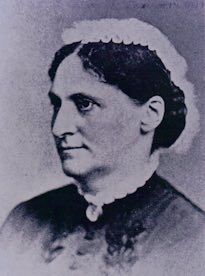
Linda Richards
Received the first diploma awarded by the nation’s first school of nursing. Richards dedicated her career to creating professional nurses training schools nationwide to improve both patient care and nurses’ skills.
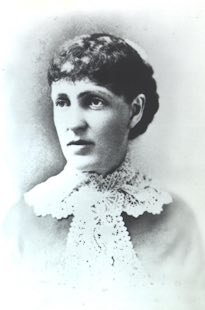
Kate Stoneman
Kate Stoneman was the first woman admitted to practice law in New York State. In 1885, she became the first female to pass the New York State Bar Exam, but her 1886 application to join the bar was rejected because of her gender. Stoneman immediately launched a lobbying campaign to amend the Code of Civil Procedure to permit the admission of qualified applicants without regard to sex or race, and was successfully admitted to the bar later the same month. In 1898, she became the first female graduate of Albany Law School, and was the first woman to receive a bachelor’s degree from any department of Union University.
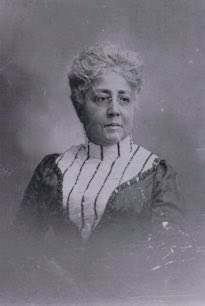
Josephine St. Pierre Ruffin
African American leader from New England. Ruffin was a suffragist, fought slavery, and founded several organizations for African American women, including the Boston branch of the NAACP and the League of Women for Community Service.

Ellen Swallow Richards
The nation’s first professional woman chemist, an important figure in opening careers in science to women. By applying scientific principles to domestic life, Richards became a leader in the new disciplines of sanitary engineering, nutrition and home economics.
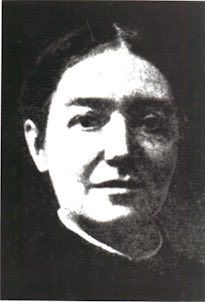
Mary Putnam Jacobi
Physician who founded the Association for the Advancement of Medical Education of Women. Jacobi was a leader in obtaining quality medical education for women.
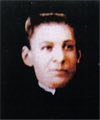
Frances Wisebart Jacobs
The driving force behind the concept of today’s United Way, founder of the Frances Jacobs Hospital (National Jewish Hospital for Immunology and Respiratory Medicine), an educator and philanthropist.

Linda Richards
Received the first diploma awarded by the nation’s first school of nursing. Richards dedicated her career to creating professional nurses training schools nationwide to improve both patient care and nurses’ skills.

Kate Stoneman
Kate Stoneman was the first woman admitted to practice law in New York State. In 1885, she became the first female to pass the New York State Bar Exam, but her 1886 application to join the bar was rejected because of her gender. Stoneman immediately launched a lobbying campaign to amend the Code of Civil Procedure to permit the admission of qualified applicants without regard to sex or race, and was successfully admitted to the bar later the same month. In 1898, she became the first female graduate of Albany Law School, and was the first woman to receive a bachelor’s degree from any department of Union University.

Josephine St. Pierre Ruffin
African American leader from New England. Ruffin was a suffragist, fought slavery, and founded several organizations for African American women, including the Boston branch of the NAACP and the League of Women for Community Service.

Ellen Swallow Richards
The nation’s first professional woman chemist, an important figure in opening careers in science to women. By applying scientific principles to domestic life, Richards became a leader in the new disciplines of sanitary engineering, nutrition and home economics.

Mary Putnam Jacobi
Physician who founded the Association for the Advancement of Medical Education of Women. Jacobi was a leader in obtaining quality medical education for women.

Frances Wisebart Jacobs
The driving force behind the concept of today’s United Way, founder of the Frances Jacobs Hospital (National Jewish Hospital for Immunology and Respiratory Medicine), an educator and philanthropist.
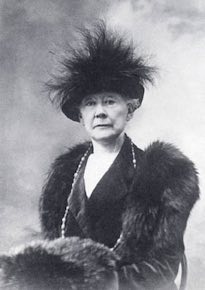
Mary Cassatt
American impressionist painter who captured the soul of family life, women, children, interiors and gardens. A friend and student of the great Impressionists of Paris, Cassatt powerfully influenced American art.
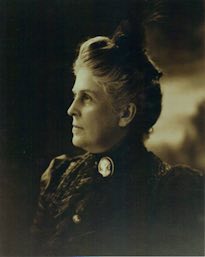
Harriet Williams Russell Strong
An inventor of water-conservation techniques, she was also a very successful businesswoman. Her water irrigation systems are credited with being one of the factors in the development of southern California as a major agricultural region.
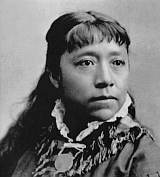
Sarah Winnemucca
Paiute leader who dedicated her life to returning land stolen by the government back to the tribes, especially the land of her own Paiute Tribe.
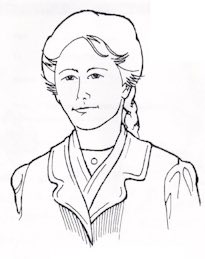
Kate Mullany
Founder and organizer of the Collar Laundry Union in 1864, she led a strike of 200 laundresses in Troy, NY, which resulted in a 25% wage increase and improvement of working conditions. Her efforts to organize women in New York City and financially assist both male and female unions were rewarded when she was appointed as an assistant secretary of the National Labor Union, making her the first female to hold a national labor post.
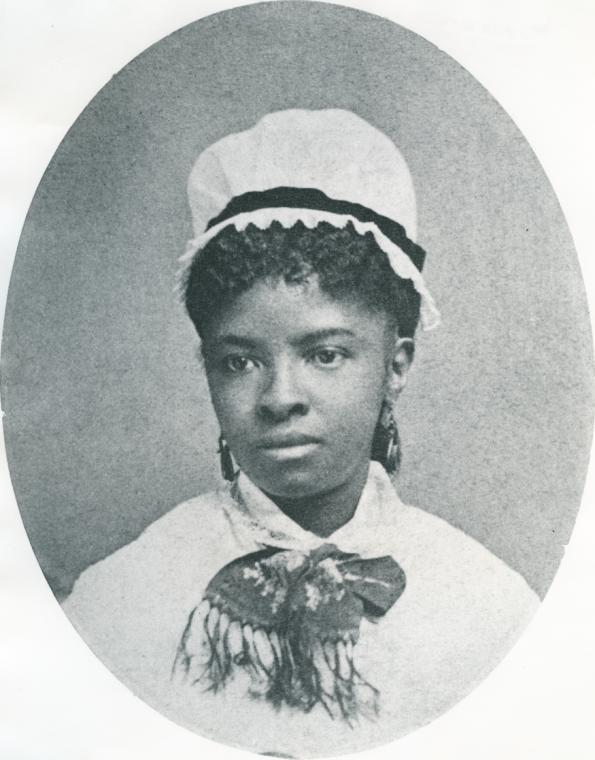
Mary Mahoney
First African American woman to study and work as a professionally trained nurse. Mahoney received her diploma from the New England Hospital in 1879, one of only four of 18 to pass the difficult course.
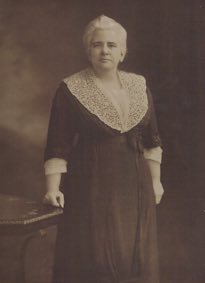
Anna Howard Shaw
A leader in the women’s suffrage movement, Shaw was a master orator for social justice, and the first woman to be ordained by the Protestant Methodist Church. She was the first living American woman to be awarded the U.S. Distinguished Service Medal.

Mary Cassatt
American impressionist painter who captured the soul of family life, women, children, interiors and gardens. A friend and student of the great Impressionists of Paris, Cassatt powerfully influenced American art.

Harriet Williams Russell Strong
An inventor of water-conservation techniques, she was also a very successful businesswoman. Her water irrigation systems are credited with being one of the factors in the development of southern California as a major agricultural region.

Sarah Winnemucca
Paiute leader who dedicated her life to returning land stolen by the government back to the tribes, especially the land of her own Paiute Tribe.

Kate Mullany
Founder and organizer of the Collar Laundry Union in 1864, she led a strike of 200 laundresses in Troy, NY, which resulted in a 25% wage increase and improvement of working conditions. Her efforts to organize women in New York City and financially assist both male and female unions were rewarded when she was appointed as an assistant secretary of the National Labor Union, making her the first female to hold a national labor post.

Mary Mahoney
First African American woman to study and work as a professionally trained nurse. Mahoney received her diploma from the New England Hospital in 1879, one of only four of 18 to pass the difficult course.

Anna Howard Shaw
A leader in the women’s suffrage movement, Shaw was a master orator for social justice, and the first woman to be ordained by the Protestant Methodist Church. She was the first living American woman to be awarded the U.S. Distinguished Service Medal.
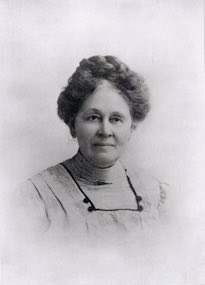
Emma Smith DeVoe
President of the Washington Equal Suffrage Association, successfully ran the campaign that resulted in Washington becoming the first state in the 20th century to grant full enfranchisement to women in 1910, a full decade before passage of the 19th Amendment. DeVoe established the first national organization of voting women, which eventually merged with the National League of Women Voters, leaving an invaluable legacy about the importance of the educated use of the franchise.
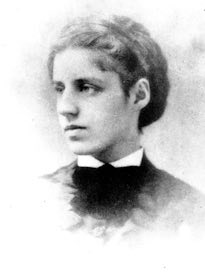
Emma Lazarus
“Give me your tired, your poor, your huddled masses yearning to breathe free.” These famous words from The New Colossus, were written by Emma Lazarus, one of the first successful Jewish American authors. Originally created in 1883, the sonnet was later engraved in bronze and placed at the base of the Statue of Liberty. Throughout her lifetime, Lazarus authored and published numerous poems, essays, letters, short stories and translations. She was an important forerunner of the Zionist movement, having argued for the creation of a Jewish homeland thirteen years before the term Zionist was even coined.
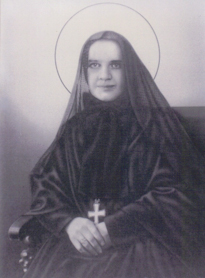
St. Frances Xavier Cabrini
Established orphanages, day care centers, schools, clinics and hospitals for immigrants in the United States and around the world. She established a missionary order of women and was the first American citizen to be canonized a saint.
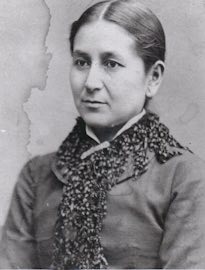
Susette La Flesche
Member of the Omaha Tribe and a tireless campaigner for native American rights. La Flesche was the first Native American published lecturer, artist and author. She helped change national perceptions about the rights of Native Americans.

Ida Tarbell
Writer and editor, her expose of the Standard Oil Trust in the 1904 publication The History of the Standard Oil Company prompted the federal government to prosecute and break up Standard Oil for anti-trust violations. She founded the American Magazin, authored several biographies, and, in spite of her 1912 anti-feminist book, The Business of Being a Woman, remains a role model for women and men in journalism.
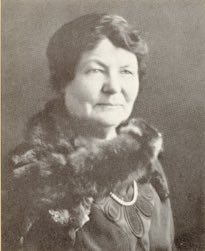
Martha Matilda Harper
After 25 years of low-wage service, Martha Matilda Harper started a beauty products system called the Harper Method, eventually realizing over 500 franchises world-wide in the 1920s. Harper is credited with creating the modern retail franchising method. She was also known as a social justice advocate ahead of her time, offering evening hours for working women, profit-sharing and personal time off. She refused to use permanents or hair dyes in her salons because of the associated chemicals.

Emma Smith DeVoe
President of the Washington Equal Suffrage Association, successfully ran the campaign that resulted in Washington becoming the first state in the 20th century to grant full enfranchisement to women in 1910, a full decade before passage of the 19th Amendment. DeVoe established the first national organization of voting women, which eventually merged with the National League of Women Voters, leaving an invaluable legacy about the importance of the educated use of the franchise.

Emma Lazarus
“Give me your tired, your poor, your huddled masses yearning to breathe free.” These famous words from The New Colossus, were written by Emma Lazarus, one of the first successful Jewish American authors. Originally created in 1883, the sonnet was later engraved in bronze and placed at the base of the Statue of Liberty. Throughout her lifetime, Lazarus authored and published numerous poems, essays, letters, short stories and translations. She was an important forerunner of the Zionist movement, having argued for the creation of a Jewish homeland thirteen years before the term Zionist was even coined.

St. Frances Xavier Cabrini
Established orphanages, day care centers, schools, clinics and hospitals for immigrants in the United States and around the world. She established a missionary order of women and was the first American citizen to be canonized a saint.

Susette La Flesche
Member of the Omaha Tribe and a tireless campaigner for native American rights. La Flesche was the first Native American published lecturer, artist and author. She helped change national perceptions about the rights of Native Americans.

Ida Tarbell
Writer and editor, her expose of the Standard Oil Trust in the 1904 publication The History of the Standard Oil Company prompted the federal government to prosecute and break up Standard Oil for anti-trust violations. She founded the American Magazin, authored several biographies, and, in spite of her 1912 anti-feminist book, The Business of Being a Woman, remains a role model for women and men in journalism.

Martha Matilda Harper
After 25 years of low-wage service, Martha Matilda Harper started a beauty products system called the Harper Method, eventually realizing over 500 franchises world-wide in the 1920s. Harper is credited with creating the modern retail franchising method. She was also known as a social justice advocate ahead of her time, offering evening hours for working women, profit-sharing and personal time off. She refused to use permanents or hair dyes in her salons because of the associated chemicals.
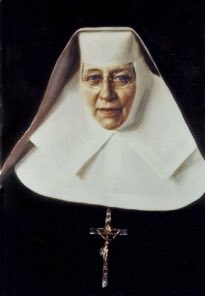
St. Katharine Drexel
A missionary who dedicated her life and fortune to aid Native Americans and African Americans, Saint Katharine Drexel is only the second recognized American-born saint. In 1891, Saint Katharine founded the Sisters of the Blessed Sacrament, a religious order that today remains devoted to the education and care of Native Americans and African Americans. During her lifetime, Saint Katharine and her order founded more than sixty missions and schools, including Xavier University of Louisiana. Saint Katharine was beatified in 1988 and canonized in 2000.
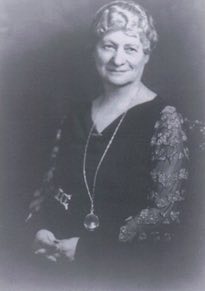
Hannah Greenebaum Solomon
Club woman and welfare worker on matters relating to child welfare, she organized a nationwide Jewish Women’s Congress as part of the 1890’s World’s Fair. It later became the National Council of Jewish Women, to which she was elected its first president.

Carrie Chapman Catt
Tenacious women’s suffrage organizer whose efforts at the helm of the National American Women Suffrage Association put forth the “winning plan” that led to state-by-state enactments of suffrage and the final victory in 1920.
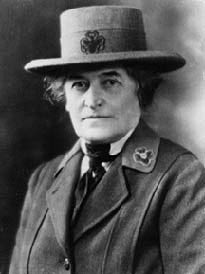
Juliette Gordon Low
As a tireless champion of young girls, Juliette Gordon Low founded the Girl Scouts of the USA (1912). Today, there are more than 3 million girl and adult members of the Girl Scouts of the USA.

Jane Addams
Social reformer and peace activist who created Hull House in the slums of Chicago, starting an American settlement house movement to provide help for the poor. A lifelong activist, Addams fought child labor, infant mortality and dangerous workplaces. Founder of the Women’s International League for Peace and Freedom, she won the Nobel Prize for Peace in 1931.
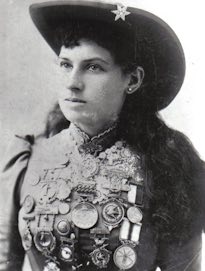
Annie Oakley
Markswoman, was probably the nation’s finest. A performer for many years with Buffalo Bill’s Wild West Show, Oakley was a staunch supporter of other women’s opportunities and raised funds to send needy women to college and nursing school.

St. Katharine Drexel
A missionary who dedicated her life and fortune to aid Native Americans and African Americans, Saint Katharine Drexel is only the second recognized American-born saint. In 1891, Saint Katharine founded the Sisters of the Blessed Sacrament, a religious order that today remains devoted to the education and care of Native Americans and African Americans. During her lifetime, Saint Katharine and her order founded more than sixty missions and schools, including Xavier University of Louisiana. Saint Katharine was beatified in 1988 and canonized in 2000.

Hannah Greenebaum Solomon
Club woman and welfare worker on matters relating to child welfare, she organized a nationwide Jewish Women’s Congress as part of the 1890’s World’s Fair. It later became the National Council of Jewish Women, to which she was elected its first president.

Carrie Chapman Catt
Tenacious women’s suffrage organizer whose efforts at the helm of the National American Women Suffrage Association put forth the “winning plan” that led to state-by-state enactments of suffrage and the final victory in 1920.

Juliette Gordon Low
As a tireless champion of young girls, Juliette Gordon Low founded the Girl Scouts of the USA (1912). Today, there are more than 3 million girl and adult members of the Girl Scouts of the USA.

Jane Addams
Social reformer and peace activist who created Hull House in the slums of Chicago, starting an American settlement house movement to provide help for the poor. A lifelong activist, Addams fought child labor, infant mortality and dangerous workplaces. Founder of the Women’s International League for Peace and Freedom, she won the Nobel Prize for Peace in 1931.

Annie Oakley
Markswoman, was probably the nation’s finest. A performer for many years with Buffalo Bill’s Wild West Show, Oakley was a staunch supporter of other women’s opportunities and raised funds to send needy women to college and nursing school.
